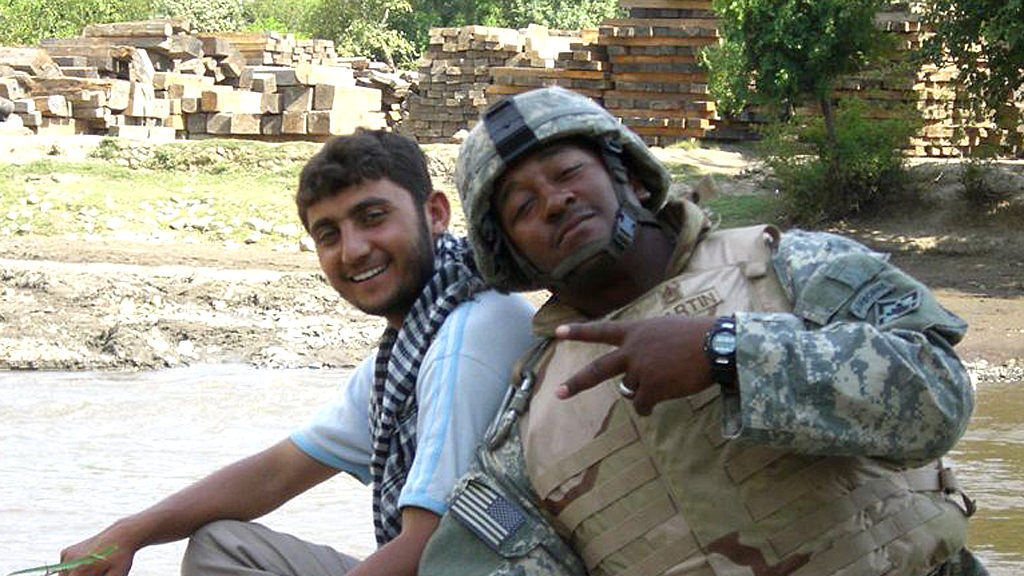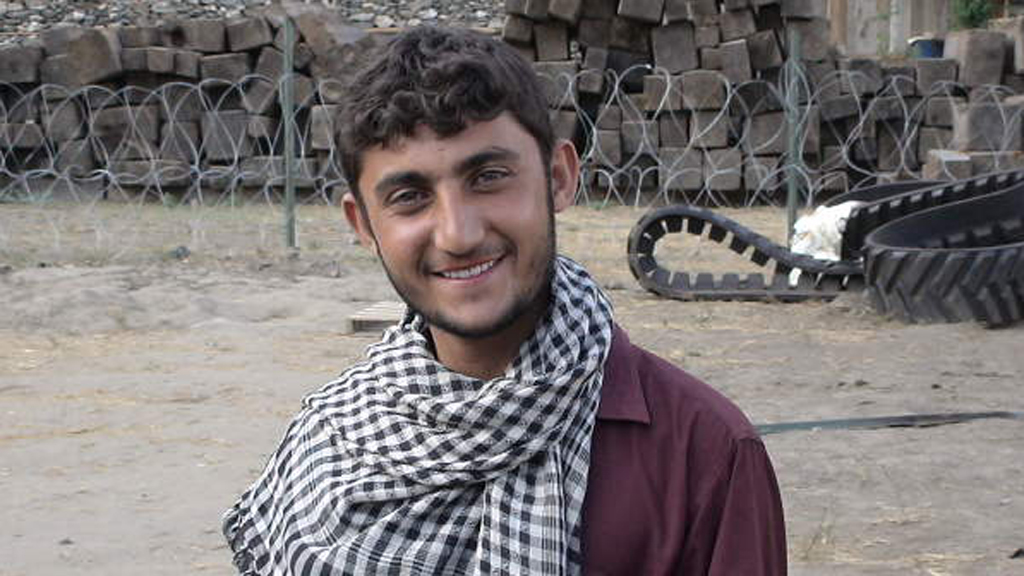Afghan translator faces ‘certain death’ if he returns home
Former US Army interpreter Hekmatullah Wahidi learns this week if he can appeal his deportation from the UK. But if he returns to his native Afghanistan, he is “certain” the Taliban will kill him.

“When the troops leave, we will be the number one target for the Taliban. We stood shoulder to shoulder to with them, they know us,” says Hekmatullah Wahidi, an Afghan translator who now finds himself in Brook House detention centre, near Gatwick Airport, waiting to find out this week if he will be allowed to appeal the decision to deport him, writes Toby Bakare.
With elections for a new president having just taken place, a turnout that exceeded expectations, and British troops set to leave by December, Afghanistan is transitioning towards a self-governing democracy. But for the interpreters who played a crucial part in building bridges and overcoming cultural chasms, Afghanistan has never been a more dangerous country as they lose the protection of armed forces and represent high-profile targets for retribution by the Taliban.
In limbo
Despite the progress being made, many are leaving, and this leaves nations which made up the coalition forces – but especially the British and American governments who used the largest number of interpreters – with difficult decisions about granting asylum.
In the United States, there are only 2,300 visas available under a scheme to grant Afghan interpreters leave to remain. There are more than 5,000 applications still remaining to be processed. In Germany a third of the more than 500 interpreters employed in Kunduz province have been granted asylum but only after repeated death threats from the Taliban in the region and the death of one their interpreters in November last year.
Interpreters feel in limbo, rejected by nations which made up the Isaf forces, fearful of torture and death if they remain in Afghanistan.
In the UK, Defence Secretary Philip Hammond announced in June last year plans to grant asylum to Afghan interpreters. His ruling extended to those who were serving with British forces on the date the drawdown was announced in 2012 and had served for 12 months continuously. This applies to around 600 interpreters, less than half the total number.
Many interpreters feel in limbo, rejected by nations which made up the Isaf forces in Afghanistan, but fearful of torture and death if they remain in Afghanistan. It’s an issue which is set to worsen in the coming months as troop withdrawal hastens.

‘Outstanding contribution’
“My crime was being an interpreter for the Americans,” says Hekmatullah, or Tony as he was known by the soldiers. “Because of this job I have lost my family, my mother has been tortured. For me nothing is going to change because of these elections. Taliban and Muhjaheddin know my face, If I go back I am 100 per cent certain that I will be killed.”
Tony claims to have been targeted by the Taliban on several occasions, including being shot at while with fellow interpreters and being a victim of an IED attack. He fled by a paying a third-party in a rush and without knowing which country he would end up in.
Why have I been shot at if my life is not in danger? Hekmatullah Wahidi, interpreter
Despite having a number of certificates and references from his army commanders, who describe him as “spectacular” and having made an “outstanding contribution”, Tony is one of those unlucky ones being denied asylum and stuck in a limbo which sees him in a detention centre.
Tony had hoped to build a life for himself in the UK by studying civil engineering at university, but he has been told by the Home Office that his life is not in immediate danger. “Why have I been shot at if my life is not in danger?” he asks. The price he has paid for helping his country has been a heavy one. As well as physical injuries and losing contact with his family, who he thinks fled to Pakistan, Tony has been diagnosed with PTSD and depression.
‘International obligations’
Tony’s Lawyer, Hani Zubeidi, believes that while Tony represents an exceptional case, such incidences are likely to become more frequent: “The whole thing is distasteful, and against the UK’s international obligations, the right decision in this case is obvious.”
A high court bid to challenge the current status of Afghan interpreters claiming asylum is expected later this year and will argue that not being granted asylum on the same grounds as their Iraqi counterparts, who were all offered asylum, is unlawful and discriminatory.
Many of Tony’s friends who were interpreters died while serving and many more fled. Interpreters who have fled face an uphill battle to find a country willing to take them in. It is a situation which you would assume would make Tony regret the decision to help in the nation building effort. But he remains proud of the job that he did. “I did a good job,” he says. “Why are they treating me like this?”
Toby Bakare is a freelance journalist. Follow @tobybakare on Twitter
